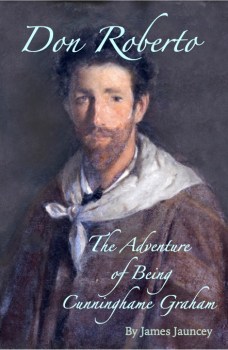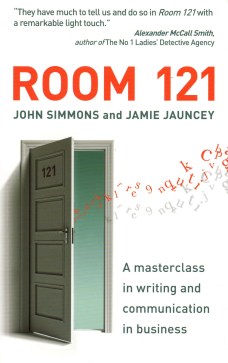Writing in The Guardian this week, George Monbiot offered an intriguing perspective on the referendum. Imagine a state that was considering surrendering its sovereignty to a larger union, he proposed.
It would retain a measure of autonomy but cede key aspects of its governance to another nation, which would use it as a military base and yoke it to an economy over which it had no control. An attractive proposition? Not likely. And the argument, he suggested, is not altered by the fact that Scotland is considering gaining rather than losing its independence.
It would certainly make for an interesting discussion among the students of the Frenchwoman I met while out canvassing this week. She is a lecturer in Scottish politics at the University of Nantes. I repeat, a lecturer in Scottish politics. At a French university. I asked if she had enough students. ‘Plenty,’ she replied. ‘It’s a fascinating subject, and it encourages them to think about how their own state is run.’
Although the new term has already begun in Nantes she had been given an extension by her head of department to remain in Scotland till after the 18th. Imagine the opportunity – like a lecturer in vulcanology being given leave of absence to witness an eruption. She herself is a Breton, she said, adding wistfully that what is happening here could never happen in France where the heavy hand of centralised government lies everywhere.
Her reaction seemed to me typical of that of so many overseas observers who are either admiring and envious of our democratic process, or amazed that there should be a debate at all, given what’s on offer. Why would you not want independence? is a common refrain, to which George Monbiot’s proposition is a reverse echo.
As the day comes closer, as our nerves stretch further and we become increasingly campaign-weary, it’s easy to default to the negative: the why-wouldn’t-we-want-it (because everyone else has it) or the why-we-shouldn’t-stay (because the status quo is rotten) view of things. But I believe this is the moment when it’s most important to keep sight of the positive reasons for a Yes vote. And one doesn’t have to look far for them.
There’s an excitement in the eyes of so many of the people I talk to, in the voices of so many of the independent commentators and bloggers I read, and it’s not the light or ring of fanaticism, rabid nationalism, Anglophobia or any of the other unpleasant characteristics so mischievously ascribed to the Yes campaign in recent months.
It’s simply something welling up in the hearts of a very large number of quite ordinary people, a belief that positive change is coming, a moment of unparalleled opportunity for Scotland to become the very best country it can be. It’s a palpable sense of something momentous being within touching distance and it transcends all the normal boundaries of age, gender, race, class, wealth and political allegiance.
It’s a song of hope that’s ready to burst from a couple of million throats, a hymn to this beautiful, rich land and the potential of its warm, thoughtful, ingenious people to create the fair, decent, equal and prosperous society that has stood for so long and so firmly in the Scottish imagination, and to which so many who live in Scotland today aspire.
Realising it won’t necessarily be easy, but one thing we know for certain: for it to happen at all, we must first be able to imagine it. Right now, the imaginations of half the voters in Scotland are on fire.






Jamie, I agree that the Monbiot article is very thought-provoking, and that the Allan Little essay is excellent – probably the clearest long-view article to come out of the BBC over the last year.
This last week I have been at a conference in Kosice, Slovakia (a country of 5m which became independent, through political negotiation not a referendum, more than 20 years ago). There were delegates from dozens of European countries, big and small, and the hot topic everywhere was Scottish independence and the coming vote. Without exception the views expressed were respectful (‘it’s your choice’), interested, and friendly. Some people were well-versed in the economic arguments, some in the cultural ones (it was a language and literature conference), and all recognised that a reasonable case for or against independence could be made. But amongst those from smaller countries, the overwhelming view was, ‘why would you not take this opportunity?’ And the reason was neither for material gain nor for the opportunity to wave your own flag: the reason was that with independence you take responsibility for your own mistakes as well as for your achievements. You grow up, in other words.
Of one thing I am sure. If, as I hope, we vote Yes in a fortnight and take our place in the community of nation-states, we will receive a very warm welcome from countries throughout Europe and the rest of the world.
LikeLike
Growing up, finding our voices, individuating, becoming adult, responsible, non-dependent – all these things and more, James. This is the new story Scotland has to start telling itself.
LikeLike
Living in Spain, which is supposedly dead-set against Scottish Independence (according to both the British and Spanish press), I find that people are extremely interested in the Scottish referendum. They see it as separate from the Catalan referendum (which is viewed by the majority as illegal, but by some as an inevitable outcome to the meddling of the Partido Popular (PP) in Catalan education and language, and something that the Scots should decide without pressure from Spain. They very respectfully curious, wanting to know why the YES campaign thinks Scotland would be better off as an independent nation and when told the reasons tend to use the expression “¡Ficáte!” ( which hereabouts has the meaning of WOW!) in response. They always finish off by wishing us good luck for the 18th.
Incidentally, the claim that Rajoy would block Scotland´s remaining in the EU is nonsensical when one looks at the local politics: Rajoy and his party, PP, are almost entirely funded in Galicia (a PP stronghold) by the Galician fishing industry, which would suffer most were Scotland to be expelled from the EU. Pure self-interest, and political expediency, will override any concerns about Catalonia.
I so wish I could be in Scotland now – I would have saved any holiday I had for these last days so that I could be out campaigning and canvassing for Scotland´s chance at the great adventure of being an independent nation once again.
LikeLike
Jamie, I do like your titles. I’ve been quoting the term Two Million Somnabulists whenever relevant, and now delight in joining you in being ‘fired up’.
James Robertson mentions growing up, taking responsibility for our mistakes as well as achievements and I often have to contain my urge to say ‘Grow up’ to No voters in full flow.
However, there is a part of me that doesn’t want to grow up, and that is the part Jamie emphasises, the ability to imagine, to be part of an adventure, and to risk the long walk. Yes, my early history is in South Africa, and Nelson Mandela did indeed take a long walk to freedom. Scotland’s walk will not be easy, but I am inspired by Cameron McNeish’s blog ‘Why I’m Voting Yes’
http://cameronmcneish.wordpress.com/2014/08/24/why-im-voting-yes/ in which he tells how he
“walked through Scotland from end to end, 470 miles from Kirk Yetholm in the Borders to Cape Wrath. I walked through the country because it’s only by walking that you can actually hear the heartbeat of the land; it’s only by walking that you can read the small print of a nation.
In the course of that long walk I saw a land that was rich in potential, from the fertile argricultural lands of the Borders to the world-leading engineering example of the brilliant Falkirk Wheel, to the natural resource potential of renewable energy – wind, wave, tidal and of course, the world famous landscapes of Scotland that attracts visitors from all over the world.”
I’m not of an age or fitness to make the whole of that walk, and I won’t be around to see Scotland fulfil its potential, but I can imagine what it might be like, with wonders and worries along the way, and worth every part so as to achieve independence for all. The singing of Freedom Come All Ye at the Commonwealth Games opening ceremony by South African singer, Pumeza, who would never have happened unless her country had taken its long walk.
Scotland is already on its way – all fired up!
LikeLike
From the following, http://nationalcollective.com/2014/09/03/9-no-campaign-claims-and-why-they-are-wrong/
Best wishes, Jess
LikeLike
Hi Jamie, I’m enjoying your referendum words rather a lot and taking notes x
LikeLike
It’s interesting (to me, at least) that Scotland complains it didn’t get the government it voted for, what was it, 30 out of 38 elections?
The other side of that coin is that England didn’t get the government it voted for – don’t know how many times, but a lot – because Scotland swung the vote to Labour. In the 2010 election, England gave the Conservatives 108 more seats than Labour, a more than clear majority. Scotland gave us a hung Parliament.
Also interesting (to me at least) is that in the same election, the Conservatives won only one seat in Scotland, while the SNP won six – this despite the fact that the number of votes for each was very similar. It’s a weird voting system that gives Labour – with 1m votes – 41 seats, versus Conservatives – 412,855 votes – 1 seat. The Lib Dems, with fewer votes than the SNP, won 11 seats, nearly double the SNP’s total.
If, as I hope, the Union isn’t split next week, maybe this is food for thought for restructuring our electoral rules. Switzerland, with its cantons, could be a good model.
The over-arching power of central government in the UK has long outlived its usefulness and the propensity for spending money we don’t have has landed us in a position where Scotland thinks the Tories are ‘wicked’ or ‘evil’. I can’t see how they are more wicked or evil than Labour – with particular reference to Gordon Brown – who kept spending and spending and spending till we have a national debt of one trillion pounds.
So, split the UK into cantons – maybe 12 or 15, I don’t know – take the power away from the centre, and put an end to political ideology which either spends us into the gutter, or leaves us in the gutter while we rebalance the books.
If you don’t win next week, Jamie, please let’s not have another 10 years of divisive campaigning leading to yet another referendum. Let’s put our energies into campaigning for real change, proper change, something that might last as long as Switzerland’s current model – 160 years and counting; no serious unrest among its populace; not to mention notionally having the wealthiest citizens in the world.
Your post tomorrow will be like the last sleep before Christmas – except in this case, Santa may or may not come, depending on which side you’re on. I imagine you won’t be sleeping much the nest few days!
LikeLike